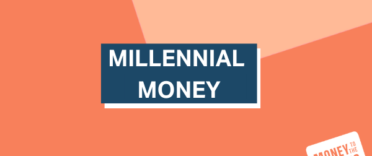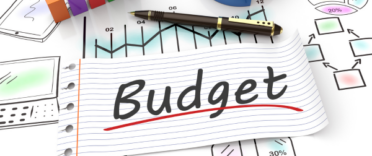We at Money to the Masses are hugely passionate about helping people with their finances with around 1.5 million people a year visiting www.moneytothemasses.com for help with everything from investing to insurance.
We have thousands of articles on the site and yet when it comes to money, I still find myself asking those obvious questions that I feel I should know the answer to. I tried searching online but I couldn't find anything relevant to me. So I figured if I'm asking those questions, there must be thousands of others asking the same thing and so I made it my mission to find out the answers.
So here it is, our brand new video money feature, Millennial Money, where Damien and I discuss all of those areas of finance that us millennials feel like they should know (and are too embarrassed to ask)
In our first video I ask Damien Fahy, founder of Money to the Masses what he wishes he'd known about personal finance and money when he was in his twenties.
Damien Says:
The value of money
I wish I'd known the true value of money. By that I mean yes how much you can buy in the shops that we kind of all know but the thing I didn't appreciate is what the real value of money meant to me. I used to buy whatever I wanted and go down the pub all the time like everybody does in their mid-20s, but the problem is that I didn't really know the value of the money I was spending.
If you have a job - what is your hourly rate or even if you are not paid hourly what does your hourly rate equate to. If I knew that then, I would have known how much or how many hours I would have had to have worked to be able to buy the frivolous thing that I had just bought. That would have probably stopped me from getting into as much debt as I did. I'll be honest with you, although I'm a trusted source when it comes to money now, I made all the mistakes that everybody else made and learnt from them. Knowing the true value of money would have stopped me getting into so much debt as I did in my early twenties.
Debt - How does debt work?
Number 2 for me was debt and more importantly how debt works. I used to get into debt because when I went down the pub with my mates I'd go and draw money from a cash machine using my credit card and it was that spiral that I didn't quite appreciate. Essentially what you're doing is you're borrowing from your future self and ultimately you're going to have to pay it back. No one else is going to pay it back for you and though it may sound silly, I wish I'd understood the fact that at some point it was going to be crunch time. I didn't appreciate that my future self would some day be knocking on the door and wanting their money back.
Let's be honest, the banks don’t care about you. They give you loans and they give you student accounts with overdrafts because they know once they get you, you're going to be a customer for life, you're likely to get a mortgage from them which in turn they'll make lots of money from; it's a form of entrapment almost.
If I'd understood how debt worked I would have probably lived within my means a little more than I did; I'm not saying I would have been perfect but I would have been more aware and ended up in less debt as a result.
Save by paying yourself first
Number 3 is paying yourself first.
Everyone tells you that you've got to save money and if you want to have a house then you have to save, but the idea of paying yourself first is a slightly different way of looking at it. So if you've got bills, the way it works is your money comes in from your job and then the money goes out of your account almost immediately to pay lots of different bills. The idea is that you should set up a standing orde, even for just a small amount and you pay yourself, ie sending money from your current account into a savings account.
So it's the idea of paying yourself first before all the others. You've got to make sure you've got enough money left to pay your bills but you get used to the idea of having the money go out and therefore you don't miss it. The younger you start paying yourself, the smaller that amount needs to be, whether it be buying a house or to go towards retirement. So if I'd got into that idea when I was younger I would have started with small amounts, but with the power of compounding (which is that snowball effect where savings get bigger and bigger year on year), then that would have made a huge difference and I've no doubt that I would have been able to buy a house quicker. I'm not going to pretend I would have had a house ten years earlier than I did, but I would certainly have had a lot less debt and a far bigger deposit as a result.
If you have any particular burning questions or topics that you would like to be discussed, email [email protected]. Head over to our social media accounts too:
Facebook - Money to the Masses
Twitter - @money2themasses
Instagram - @moneytothemasses
Youtube - Money to the Masses
[easy-tweet tweet="Millennial Money with Damien & Lauren" user=""]



